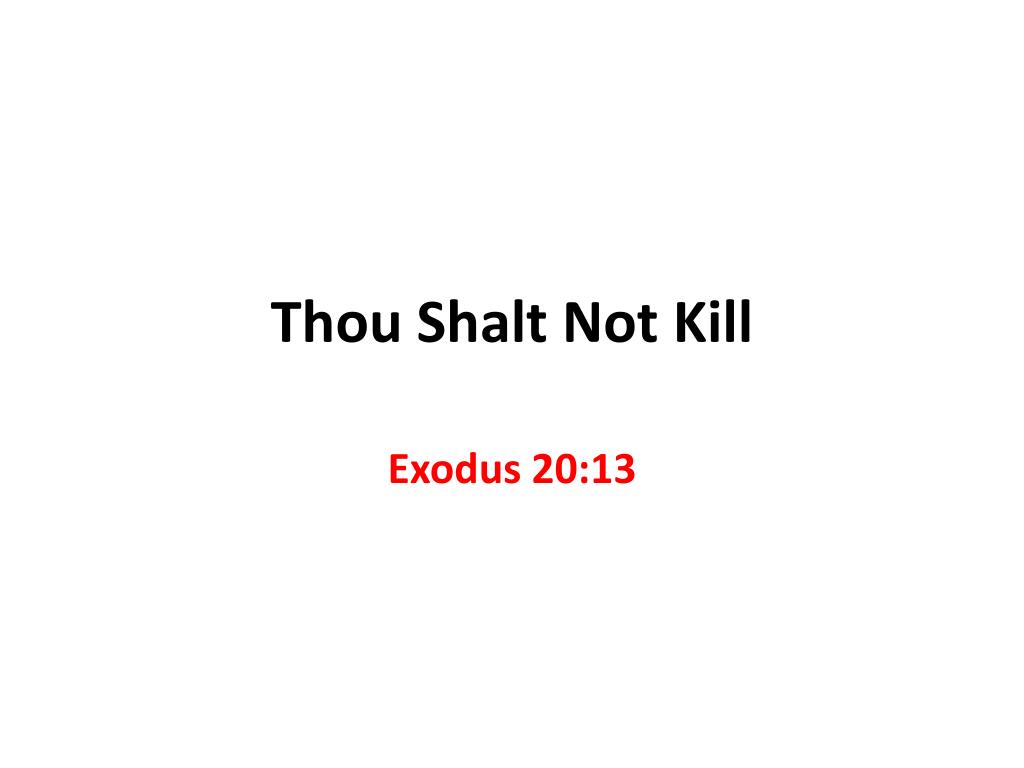

Even if we do not do the actual act of killing ourselves, the moment we purchase or eat the animal’s flesh we incur the karma of its murder. When we eat the flesh of an animal we kill in two ways.

We have been speaking of human beings, but the killing of animals is also prohibited by this command. When we see how both animals and men cling so desperately to life–even when living in defective or painful bodies–we can somewhat gauge the trauma of being murdered, and understand the enormity of such an act. Although the halting is only temporary because of the law of rebirth, it is still evil to interrupt the development of another being. For the evil of killing is not in giving pain to another–otherwise painless murder would be allowed by the Commandments–but in the stopping of another being’s evolutionary passage to God by destroying his body. Obviously, then, we do not kill other human beings (including the unborn, since conception is impossible without the entry of the spirit) or contribute to their physical destruction through either action or inaction, directly or indirectly. An integral part of life is consciousness, so we can never take conscious life–that is, any form of life above plant life (and we should respect the lives of plants as well). “You shall not take life” is the command. Now, life has many forms, therefore killing has many forms as well. And we must examine our own thoughts and attitudes toward others lest we, too, be as they. How easy it is for the externally virtuous to be internally foul. Many murderers move among us, seemingly fine people, but in the eyes of God they are murderers for they harbor hatred for another human being–oftentimes for many human beings. The Beloved Apostle tells us: “Whosoever hateth his brother is a murderer” (1 John 3:15). For there is an unseen form of murder: the murder within the heart. If we do not lie, we shall not be lied to if we do not steal, we shall not be stolen from if we do not kill, we shall not be murdered, and so forth.Īt first glance it would seem that this Commandment does not at all apply to us who are seeking higher consciousness since we are surely not going to murder anyone, but according to The Complete Hebrew/English Dictionary the Hebrew word tirtzach means “any kind of killing whatsoever.” In a sense it applies more to us as seekers than to anyone else. Some times, though we simply have to “stand up and take it,” realizing that in reaping our negative karmas we are clearing up ancient debts, and that in the future we must ensure that we create no more of them.Īlso, the Commandments are for the shaping of our future. The best and safest way to escape the law of karma is to transcend the state of consciousness that makes karma possible. Easy to say, but it entails a great deal of spiritual work. Through meditation and the Sacraments it is possible to dispel the inner darkness brought about by our past evil actions, and that eliminates the karma. To feel with Lady Macbeth that “a little water” of repentant tears “clears us of this deed” is to be sadly self-deceived. To truly understand the folly of past actions is good if it helps us avoid such actions in the future. There can be no canceling of the law simply because we say, think, or hope we are sorry for our sins. The Ten Commandments are a practical guide for those of us who would live in intelligent conformity with the law that exactly what we sow we shall indeed reap (Galatians 6:7). For that is the bottom line of the whole matter–the regaining of Life. Again we must remember the prior statement: We should look upon any commandment given by God or the Masters of spiritual life as being prefaced with the unspoken words: if you would live.

The Ten Commandments do not make us abject slaves of a peevish and whimsical God, as some have mistakenly supposed, but rather they place our spiritual destiny directly into our own hands–the only hands that can accomplish our salvation (Philippians 2:12). The acts which the Commandments enjoin are processes that will facilitate our eventual union with God, and those they prohibit are those which will prevent that union and increase our estrangement from the divine Source. But since we are really gods and not mortals, our perspective should be that of the questing spirit rather than that of egoic impulse. Nobody particularly likes being told what to do, but even more we dislike being told what not do–that is just human nature. With this Commandment we are coming to the lengthy section of Do Nots in the Commandments. Chapter Seven of the Gnosis of the Ten Commandments and the Beatitudes


 0 kommentar(er)
0 kommentar(er)
